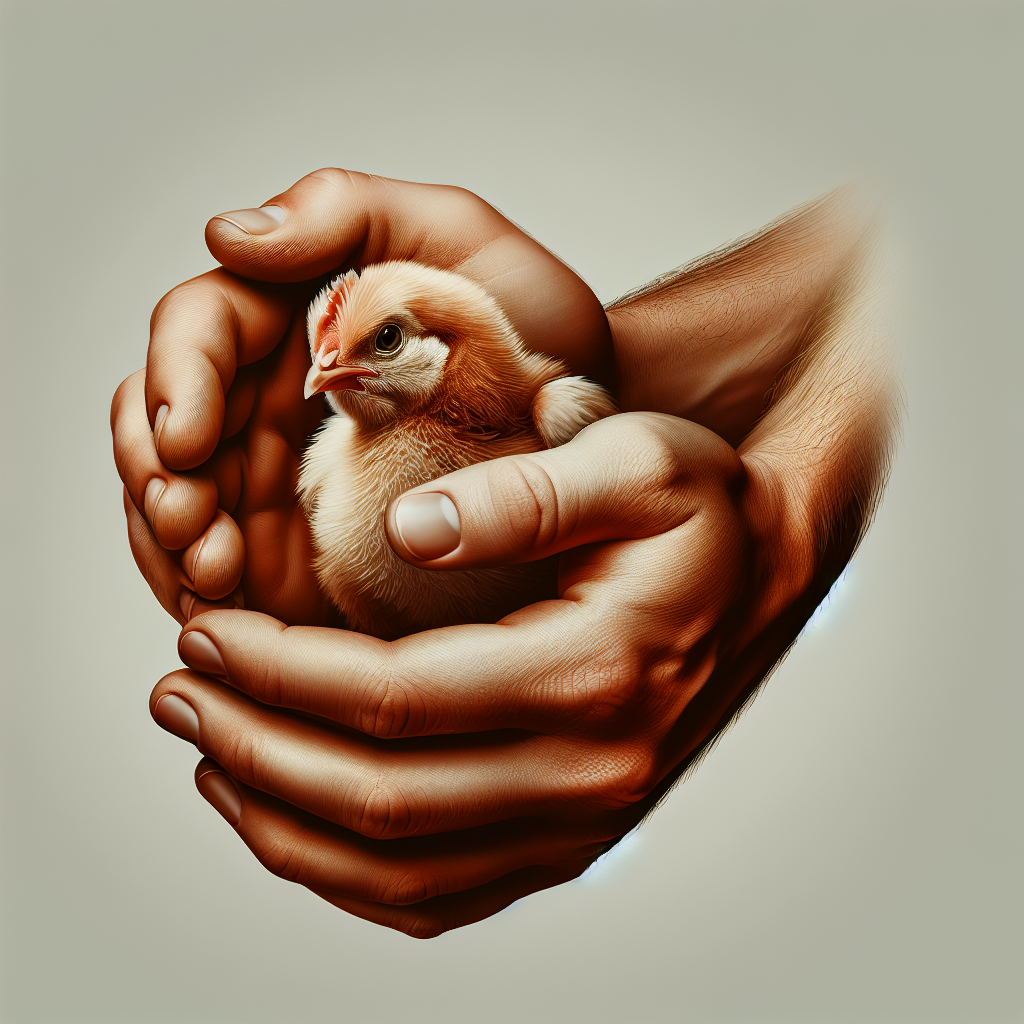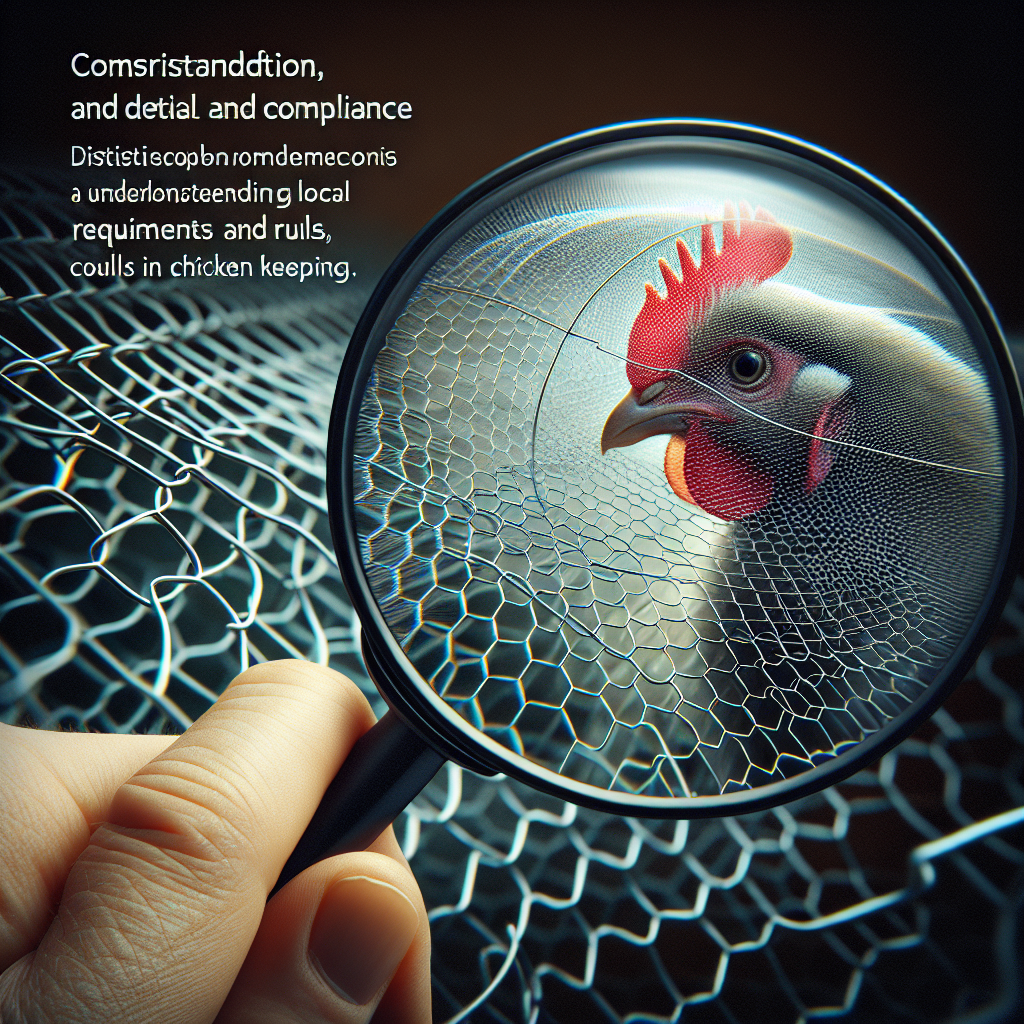Are you a beginner in the world of chicken keeping? If so, you may wonder about the frequency at which you should be conducting health checks on your flock. It’s important to ensure the well-being of your feathered friends, but how often is too often or not enough? In this article, we’ll explore the ideal frequency for beginners to conduct health checks on their poultry, providing you with valuable insights to keep your flock happy and healthy. So let’s dive in!
Overview
Keeping your flock of chickens healthy is of utmost importance. Regular health checks are essential to ensure the well-being and productivity of your flock. By monitoring their physical appearance, behavior, feed and water consumption, and egg production, you can identify any potential health issues and take immediate action. This comprehensive guide will provide you with the necessary information on how often to conduct health checks, what to look for during these checks, preventive health measures, common health issues to watch out for, consulting a veterinarian, and continuing education for beginners. By following these guidelines, you can ensure the health and happiness of your feathered friends.
Frequency of Health Checks
As a beginner, it is important to establish a regular schedule for conducting health checks on your flock. While the frequency may vary depending on certain factors, a general guideline is to perform health checks at least once a week. However, it is crucial to keep in mind that certain situations may require more frequent checks. Factors to consider include the age of your chickens, their breed, the size of your flock, and any specific health concerns you may have.
Factors to Consider
When determining the frequency of health checks, there are several factors to consider. If you have young chicks, they are more susceptible to diseases and should be monitored more frequently. Certain breeds may also be more prone to specific health issues, so keeping a closer eye on them is beneficial. Additionally, the size of your flock plays a role in determining how often to conduct health checks. Larger flocks may require more regular checks, as diseases can spread more easily in crowded conditions.
General Guidelines
In general, conducting health checks on your flock at least once a week is a good rule of thumb. This allows you to closely monitor their well-being and catch any potential health issues early on. By establishing a routine, you will become more familiar with what is normal for your chickens and will be able to quickly identify any abnormal behavior or physical changes. However, if you notice any signs of illness or distress, it is important to increase the frequency of your health checks or seek professional help.
Special Considerations
Certain situations may require more frequent health checks. For example, during extreme weather conditions, such as heatwaves or cold snaps, your flock may be more susceptible to stress-related illnesses. In such cases, increasing the frequency of health checks can help you identify and address any problems promptly. Additionally, if you introduce new chickens to your flock or notice any signs of illness in one bird, it is crucial to isolate the affected bird immediately and perform more frequent health checks to prevent the spread of diseases.
What to Look for During Health Checks
During your regular health checks, it is important to pay attention to various aspects of your chickens’ well-being. By closely observing their physical appearance, behavior, feed and water consumption, and egg production, you can gather valuable information about their health.
Physical Appearance
Inspecting your chickens’ physical appearance is key to identifying any signs of illness or abnormalities. Look for any changes in their feathers, such as matted or discolored areas, as this may indicate parasites or skin conditions. Additionally, check their eyes for any signs of discharge or cloudiness, which could be indicative of respiratory infections. Monitor their body condition, ensuring they have good muscle tone and are neither overweight nor underweight. Any noticeable swelling or growths should be investigated further.
Behavior
Observing your chickens’ behavior can provide insights into their overall well-being. Pay attention to how they interact with each other, as any aggressive behavior may be a sign of stress or territorial disputes. Monitor their activity levels and ensure they are moving around freely and engaging in normal chicken behaviors, such as scratching and dust bathing. Changes in behavior, such as lethargy or decreased appetite, may indicate underlying health issues.
Feed and Water Consumption
Monitoring your chickens’ feed and water consumption is essential for their health. Keep track of how much feed they are consuming and ensure it is appropriate for their age and breed. Any significant changes in their appetite or refusal to eat should be investigated. Similarly, observe their water consumption and ensure they have a clean and adequate supply at all times. Dehydration can lead to serious health problems, so it is crucial to address any changes in water consumption promptly.
Egg Production
If your chickens are laying eggs, their production can be an indicator of their overall health. Keep track of the number of eggs they lay each day and any changes in the size, shape, or color of the eggs. A sudden decrease in egg production or abnormalities in the eggs themselves may indicate underlying health issues. It is important to note, however, that certain factors, such as molting or changes in daylight hours, can also affect egg production.
Health Check Procedures
Performing thorough health checks involves a combination of observation, physical examination, and record-keeping. By following these procedures, you can ensure you are accurately assessing the health of your flock and maintaining a comprehensive health record.
Observation
Starting with a visual inspection, carefully observe your chickens for any physical abnormalities or changes in behavior. Take note of their overall appearance, including their feathers, eyes, and general demeanor. Spend time watching their interactions with other flock members and assess their activity levels. It may be helpful to have a checklist or a set of specific behaviors to monitor during your observations.
Physical Examination
A physical examination of each individual bird is a crucial part of a comprehensive health check. Gently handle each chicken, checking for any signs of injury, parasites, or abnormal growths. Examine their feet for any signs of bumblefoot or footpad lesions. Pay attention to their wings, beak, and vent area, as abnormalities in these areas may indicate health issues.
Record Keeping
Maintaining accurate records of your health checks is essential for tracking the health of your flock over time. Create a simple system for recording your observations, including the date, any abnormal findings, and any actions taken. This record-keeping will help you identify any patterns or recurring health issues and will be valuable if you need to consult a veterinarian.
Preventive Health Measures
Taking preventive measures can significantly reduce the risk of health issues within your flock. By implementing effective vaccination protocols, practicing biosecurity measures, ensuring balanced nutrition, and maintaining a clean and comfortable environment, you can promote the overall health and well-being of your chickens.
Effective Vaccination
Consult with a poultry veterinarian to determine the appropriate vaccination protocols for your flock. Vaccinating against common diseases, such as Marek’s disease or Newcastle disease, can significantly reduce the risk of outbreaks and protect the health of your chickens. Follow the recommended vaccination schedule and keep detailed records of all vaccinations administered.
Strict Biosecurity Measures
Implementing strict biosecurity measures is crucial to prevent the introduction and spread of diseases. Limit access to your flock’s living area, ensuring visitors and other animals cannot come into direct contact with your chickens. Practice good hygiene, such as washing hands and changing clothes before and after handling your flock. Quarantine new birds before integrating them into your existing flock to ensure they are healthy and disease-free.
Balanced Nutrition
Providing a balanced and nutritious diet is essential for maintaining the overall health and productivity of your chickens. Ensure they have access to a high-quality poultry feed appropriate for their age and breed. Supplementation with fresh vegetables, fruits, and calcium sources, such as crushed oyster shells, can further enhance their nutrition. Regularly monitor their feed consumption and adjust their diet as necessary.
Clean and Comfortable Environment
Maintaining a clean and comfortable environment is crucial for the health and well-being of your flock. Regularly clean their living area, removing any droppings and refreshing bedding material. Ensure proper ventilation to prevent respiratory issues. Provide nesting boxes for egg-laying hens and ensure they are clean and free of pests. Regularly inspect and repair any damaged areas to prevent injuries.
Common Health Issues to Watch Out For
Despite your best efforts, chickens may still experience certain health issues. By being aware of common problems and learning how to recognize the signs, you can take prompt action and minimize the impact on your flock’s health.
Respiratory Infections
Respiratory infections are common in chickens and can be caused by various bacteria, viruses, or parasites. Watch out for symptoms such as sneezing, coughing, wheezing, nasal discharge, or labored breathing. Isolate affected birds immediately and consult a veterinarian for appropriate treatment options.
Parasites
External and internal parasites can cause significant health problems in chickens. Keep an eye out for signs of infestation, such as feather loss, excessive scratching, and visible parasites on the birds’ bodies. Treatment options, including specific parasiticides or natural remedies, should be discussed with a poultry veterinarian.
Nutritional Deficiencies
Inadequate nutrition can lead to various health issues in chickens. Monitor their feed intake and ensure they are receiving a balanced diet. Common signs of nutritional deficiencies include poor feather quality, stunted growth, weak bones, and decreased egg production. Consult with a poultry nutritionist for guidance on adjusting their diet or supplementing with specific nutrients.
Egg Laying Abnormalities
Egg laying abnormalities can occur for various reasons, including stress, age, or underlying health issues. Look out for soft-shelled or misshapen eggs, shell-less eggs, or a sudden decrease in egg production. Providing a well-balanced diet, regular access to clean water, and a stress-free environment can help minimize these abnormalities.
Behavioral Problems
Chickens can exhibit behavioral problems due to stress, overcrowding, or changes in their environment. Aggressive pecking, feather picking, or excessive noise can be signs of underlying issues. Identify the cause of the behavior and address it promptly to maintain a harmonious flock.
Consulting a Veterinarian
While many health issues can be managed by poultry owners, there may be situations where professional veterinary assistance is necessary. Knowing when to seek professional help, choosing a poultry veterinarian, and preparing for emergencies is crucial for the well-being of your flock.
When to Seek Professional Help
Consider consulting a poultry veterinarian in the following situations:
- When multiple birds in your flock are showing signs of illness.
- When a single bird is seriously ill or injured.
- When you are unsure of the cause or appropriate treatment for a health issue.
- When preventive measures and home remedies have been unsuccessful.
- When you suspect a disease outbreak or require diagnostic testing.
Choosing a Poultry Veterinarian
Finding a knowledgeable and experienced poultry veterinarian is essential for the overall health of your flock. Seek recommendations from local poultry associations or other poultry owners in your area. Ensure the veterinarian has experience with poultry and can provide comprehensive care. Communication and a good working relationship with your poultry veterinarian are crucial for successfully managing any health issues that may arise.
Emergency Preparedness
Emergencies can happen at any time, so being prepared is essential. Have a first aid kit specifically for your chickens and keep it easily accessible. Familiarize yourself with basic treatment techniques for common injuries or illnesses, such as wound care or administering oral medications. Keep important contact information, including that of your poultry veterinarian and local emergency animal clinics, readily available.
Continuing Education for Beginners
As a beginner poultry owner, there are various resources available to help you continue learning about chicken health and husbandry. By actively seeking education through books, online resources, poultry associations, clubs, workshops, and seminars, you can expand your knowledge and take better care of your flock.
Books and Online Resources
Numerous books and online resources are available that provide comprehensive information on chicken health, care, and management. Look for reputable sources that cover a range of topics, from basic husbandry to advanced medical knowledge. Online forums and social media groups can also be valuable places to connect with experienced poultry owners and veterinarians.
Poultry Associations and Clubs
Joining poultry associations and clubs can provide you with access to a wealth of knowledge and opportunities for networking. Local or regional associations often host educational events, workshops, and conferences where you can learn from experienced poultry enthusiasts and professionals. These associations can also provide mentorship and support as you navigate the world of chicken keeping.
Workshops and Seminars
Attending workshops and seminars focused on poultry health and management is another great way to enhance your knowledge. Look for events specifically tailored to beginners or those covering topics of interest to you. These interactive learning opportunities allow you to ask questions, participate in hands-on activities, and learn from experts in the field.
Conclusion
Regular health checks are vital for maintaining the health and wellness of your flock. By closely monitoring their physical appearance, behavior, feed and water consumption, and egg production, you can quickly identify and address any health issues that arise. Implementing preventive health measures, such as effective vaccination, strict biosecurity measures, balanced nutrition, and a clean environment, can significantly reduce the risk of diseases and other health problems. In cases where professional help is needed, consult a poultry veterinarian who has experience with chickens. Continue your education as a beginner by utilizing books, online resources, joining poultry associations, and attending workshops and seminars. By prioritizing the health of your flock and staying informed, you can provide a safe and happy environment for your feathered friends.




